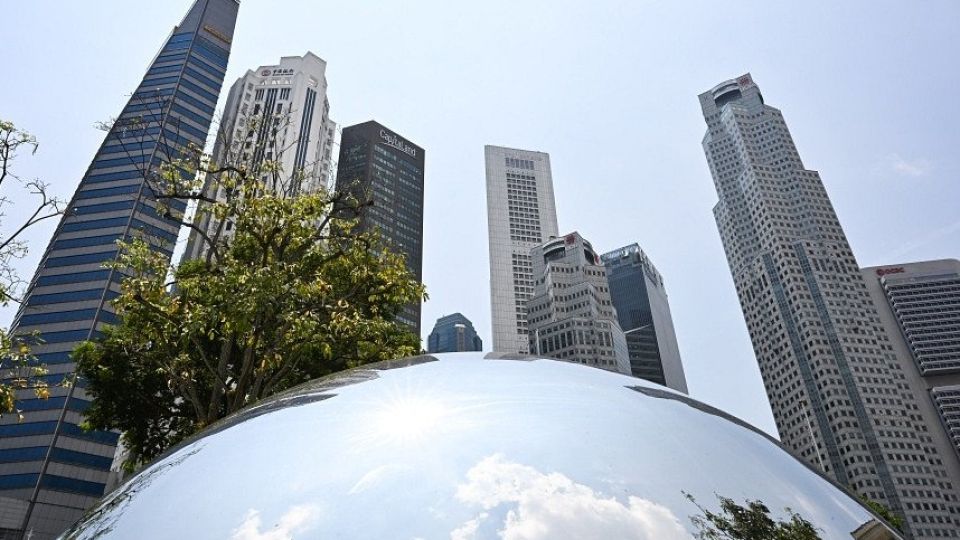November 12, 2024
SINGAPORE – Singapore has passed a Bill to implement several tax incentive enhancements ahead of a global minimum tax of 15 per cent, which will be imposed on companies that want to invest here from 2025.
Speaking in Parliament on Nov 11, Minister of State for Trade and Industry Alvin Tan said Singapore will keep updating its toolkit of incentives to attract investments and also create good jobs for its citizens.
World-class infrastructure, a quality workforce, a well-connected financial system and political stability hold Singapore in good stead with global investors, but the Republic cannot take for granted that multinational corporations (MNCs) will continue to invest here, he said.
While geopolitical and trade tensions have led to increased investment flows into Singapore, they have also fractured the rules-based global trading system, making future inflows uncertain.
“We must continuously be agile-minded and agile-footed, amend and change, be flexible with our suite of tools that are available to us to attract these investments,” Mr Tan said in a round-up speech after moving the Bill to implement several tax incentive enhancements that were announced in Budget 2024.
Among other things, the Economic Expansion Incentives (Relief from Income Tax) (Amendment) Bill introduces an additional concessionary tax rate tier of 15 per cent for the Development and Expansion Incentive (DEI) scheme.
The Bill was passed in a unanimous vote.
The Economic Expansion Incentives (Relief from Income Tax) Act, which was introduced in 1967 and has since gone through many amendments, is meant to encourage companies to grow their capabilities and conduct new or expanded activities in Singapore.
Mr Tan said Singapore periodically reviews its tax incentives to ensure they remain relevant to companies with different circumstances.
This is especially important now that large MNCs are preparing for the implementation of the 15 per cent global minimum tax under the Base Erosion and Profit Shifting (BEPS 2.0) Pillar Two rules.
The BEPS rules, prepared by the Organisation for Economic Cooperation and Development, aim to ensure that MNCs pay a fair share of tax wherever they operate.
Singapore will implement the Pillar Two rules in the fiscal year starting on or after Jan 1, 2025.
Mr Tan said the Bill also expands the scope of companies eligible for a DEI award tenure of up to 40 years to include non-headquarter service companies. This will give Singapore’s economic agencies flexibility to support deserving companies, such as those that provide payment technologies, artificial intelligence solutions or aircraft maintenance repair and overhaul services, he noted.
Finally, the Bill expands the scope of companies eligible for the award tenure of up to 40 years and extends this sub-scheme until the end of 2028, giving the Government more flexibility to respond to the fast-changing economic landscape.
Addressing questions raised by fellow MPs, Mr Tan said: “The whole Bill is meant to ensure flexibility so that, for example, if there are changes to the external environment, changes to the investment climate, economic climate, it gives the economic agencies as well as the company itself scope to negotiate.”
Asked if the DEI incentives will be available for small and medium-sized enterprises, Mr Tan said the DEI concessionary tax rate tiers will be available to all eligible companies, regardless of their country of origin, the size of the company, or whether they are in the scope of BEPS Pillar Two.
“Our economic philosophy has always been to support all companies that can bring value to Singapore, and to have the incentivised companies commit to generating economic contributions to Singapore that is commensurate with the incentive or benefit that they enjoy.”
He said each application for a new DEI award, or an amendment to an existing award, is systematically assessed to consider the merits of each case.
To be eligible for DEI, the company must engage in high-value-added activities in Singapore, either through a new set-up or expansion of existing activities.
Economic agencies, such as the Economic Development Board or Enterprise Singapore, will then assess the new or updated project based on its scale and the projected quantitative and qualitative economic benefits.
Quantitative economic benefits include skilled employment, fixed asset investment and total business expenditure committed under the project.
Qualitative benefits include the generation of spin-offs for the economy, the quality of jobs created from the project, and the commitment to grow capabilities in technology, skill sets and know-how.


